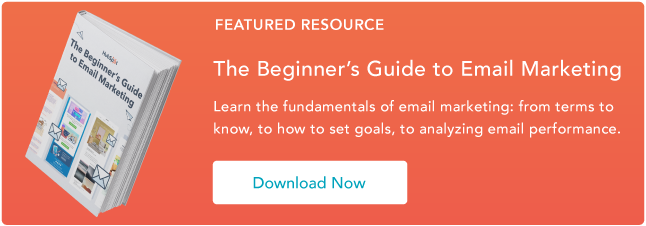Like most job seekers, I’ve had to answer the dreaded salary expectation question over email.
No matter how many times I’ve done it, it’s still nerve-wracking to put a number out there. What if I undercut myself because my number was too low? Or worse, what if I miss out on the job opportunity because my salary expectation was too high?
Aside from the anxiety I feel thinking about the outcome, the other challenging part of the process is writing the actual salary expectation email (or preparing the script I’d use if this discussion were happening face to face).
I tend to overthink what to say during tough conversations and can find myself writing and rewriting something like a salary negotiation email for over an hour.
So, I asked an expert how to answer salary expectations over email — and then I put ChatGPT to the test to see if it could write the email for me.
Table of Contents
- Deciding Your Salary Expectations
- How to Answer the Salary Expectation Question
- What ChatGPT Wrote for Me
- What I Learned From AI
Deciding Your Salary Expectations
Before you can even discuss salary expectations with the hiring team, you have to come up with your target number.
It’s important to have a desired salary in mind before you start interviewing with a company so you can use it as a guide throughout the process.
Based on my experience, here’s how to come up with a salary expectation in four steps.
1. Check the job posting.
Before you come up with your salary expectation, reference the original job posting.
Recent pay transparency laws in several states, including California and New York, require companies to include a role’s salary range in the job posting. If there is a range listed, you can use that as a baseline for the salary you want to request.
2. Research salary data.
If there isn’t a salary range listed on the job posting for your role, you can research average salaries for the role using websites like PayScale or Salary.com.
If the company is big enough, there may also be data from current and former employees who’ve shared their salaries on websites like Glassdoor.
It’s also important to consider the industry of the role you’re applying for. Tech salaries differ from government or nonprofit salaries, for example, so the industry you’re interviewing in affects your target salary.
3. Evaluate your experience and current salary.
Once you know the salary range for your role, consider your own experience to decide what you want to ask for.
You’ll likely target a salary higher than your current one — or, at the very least, the same rate, assuming this is a role you’re very interested in.
You may also be open to a lower salary than your current one for several reasons.
Maybe you’re making a career pivot or switching roles, and the experience is more important. Or perhaps the company offers benefits that make up for the lower base pay.
Using your research on industry salaries as well as your current salary, you should have a good idea of your target salary. Come up with a range that you’d accept, making sure you have a minimum that you’d be happy with.
4. Prepare a counteroffer.
The salary expectations conversation typically comes up at the beginning of the interview process, but it’s never too early to think about what type of offer you’d be happy with.
Start thinking about salary negotiation and consider what you’d be willing to negotiate on, whether that’s the base salary or other benefits. Things like stock options, more vacation days, or a hybrid work schedule may all be negotiable.
How to Answer the Salary Expectation Question
To find out exactly how to answer the salary expectation question, I talked to Nick Smith, a tech talent acquisition specialist. Here’s what he has to say.
1. Have the conversation early.
Smith emphasizes the need to have this conversation early in the process. “It should be done on your first call with the recruiter or initial point of contact,” he states.
While the salary expectations question is usually asked by a recruiter during the screening process, you could be presented with this question on the job application or in an initial email.
This is why you’ll need to have a script and answer prepared.
2. Establish a minimum.
After conducting research, you should know what the going rate is for your position and industry. Use that number as a baseline and adjust based on your experience and what you know about the role you’re interviewing for.
“Having the hiring team accept the minimum of your compensation window is absolutely critical,” says Smith.
That said, you must be reasonable about your ask. Just like you have a minimum number in mind, hiring managers also have their limit.
“Hiring teams will walk away if you don’t have a grounded number in mind,” Smith states.
3. Communicate your value prop.
Next, you have to be able to communicate to the hiring team why you’re expecting a certain salary range. Justify your desired salary with market research and by demonstrating the value you’d bring to the role and company.
Smith suggests writing something along the lines of this in a salary expectations email:
“Based on the feedback given to me by the hiring team, my projected role and impact on the team/org/company, and market research, I’d gladly accept X and withdraw myself from my remaining interviews elsewhere.”
4. Express gratitude.
If you’re eager for this position, Smith also suggests showing appreciation and a desire to move forward. You can be confident and firm without losing gratitude for the process.
“How you frame things is as important as what you’re saying,” he says.
To express gratitude in a salary expectations email, you can say something as simple as, “I’m excited about the opportunity and look forward to next steps.”
What ChatGPT Wrote for Me
As I said before, writing a salary expectation email is nerve-wracking.
I was curious to see if AI could ease some of the stress of writing this type of email, so I asked ChatGPT to write me several salary expectation emails using the expert tips above as guidance.
For this example, I found a job posting for a position I’d be interested in — a Content Marketing Manager at a tech company called ServiceChannel.
As you can see below, the salary range for this role is wide. It starts at $67,700 and goes up to $125,900.
1. Salary Expectations Email: Salary Range
Here is the first prompt I gave ChatGPT.
And here’s the chatbot’s response (warning: it’s a long one!):
There are a couple of things I’d do to improve this email.
For starters, it’s really long. While it’s important to communicate your excitement for the role and underscore your qualifications, this email buries the lead, in my opinion.
If I were writing this, I’d cut out some of the fluff and get to the point sooner.
Second, since the salary range listed on this job posting is so wide, I’d personally narrow it down even more.
ChatGPT sort of did this by writing that it’s targeting the “upper range of the stated bracket,” but that leaves some ambiguity on the table.
2. Salary Expectations Email: Setting a Minimum
For my next prompt, I want to narrow down the salary range and create a minimum compensation window, as Smith suggests.
Here’s what I asked ChatGPT to write:
Here’s what ChatGPT wrote. The response was pretty similar to the previous one, so I outlined the section that the chatbot wrote differently:
Aside from the length of this email (I’ll address that next), I think the adjustment to the salary expectation portion is better.
You may not want to throw out a specific number this early on in the interview process. But, doing so lets the hiring team know whether or not to move forward.
It also helps you decide if this position is worth pursuing. If you have an absolute minimum salary range that you’ll accept, it’s worth sharing that early on so you don’t waste your time.
3. Salary Expectations Email: Short Email
Now, it’s time to address the length. I asked ChatGPT to write a shorter email and got specific about the length:
Here’s what it generated:
The length and structure of this email are much better. It’s succinct while checking off all the boxes of an effective salary expectations email.
When talking about salary, I’d personally like to emphasize the value and experience I’d bring to a role. Communicating your value proposition is also something Smith suggests doing when sharing your salary expectations.
4. Salary Expectations Email: Communicating Value
Keeping the above in mind, I gave ChatGPT another prompt:
And here’s what it wrote:
In general, I think this email works well. This is much more aligned with how I’d write a salary expectations email.
It emphasizes my excitement about the opportunity, leads into why I’m qualified for this position, and clearly states my minimum desired salary. I also like that it reiterates my value prop and showcases confidence in my expertise.
Finally, in all of these emails, ChatGPT included a line about being open to discussing other aspects of the compensation package, which communicates flexibility.
If you’re open to negotiation for the right position, this is a smart element to include in your email.
5. Salary Expectations Email: Deflecting the Salary Expectations
For my final prompt, I wanted to see how ChatGPT would write an email in the scenario where I want to deflect the salary expectation question.
As Smith suggested earlier, this conversation is better to have in person as email is “impersonal and lacks nuance.” You may also want to learn more about the role before you share a specific number.
Here’s what ChatGPT wrote:
While this email is a little verbose still (to be fair, I never specified a certain tone I want it to emulate), it does a good job of deflecting the question.
The email states that while I’m eager for the role, I want to have this conversation later in the process when I’m more informed about everything this role will entail.
If you want to delay the salary discussion, you could also use this time to ask questions about the salary and budget. That’s something that this AI-generated email didn’t include, but that’s what I’d add if I were writing this.
What I Learned From AI
My biggest takeaway? Using ChatGPT to write a salary expectations email can be good practice if you’re currently job-seeking.
The chatbot can generate responses in seconds and adjust with each prompt you give it, which forces you to think about what you’d write differently.
The AI-generated responses can also provide a framework if, like me, getting started with this type of email is the hardest part.
However, ChatGPT isn’t going to generate the perfect response for your specific situation.
You have to provide the details and let the chatbot know the tone you want to use if you want it to generate something close to send-ready (warning: avoid giving ChatGPT *too much* information about yourself or your position).
Setting Expectations
Setting salary expectations is essential for everyone involved in the interview process. But before you can share your salary expectations, you have to be prepared with a number.
Only you know what salary range or minimum you’d be comfortable with.
Be sure to conduct plenty of salary data research, evaluate your experience and skills, and come up with a script that you can confidently use when the opportunity comes up.
You can use AI to help you form your email structure, but ultimately, you have to fill in the blanks with your own job details and salary expectations.



